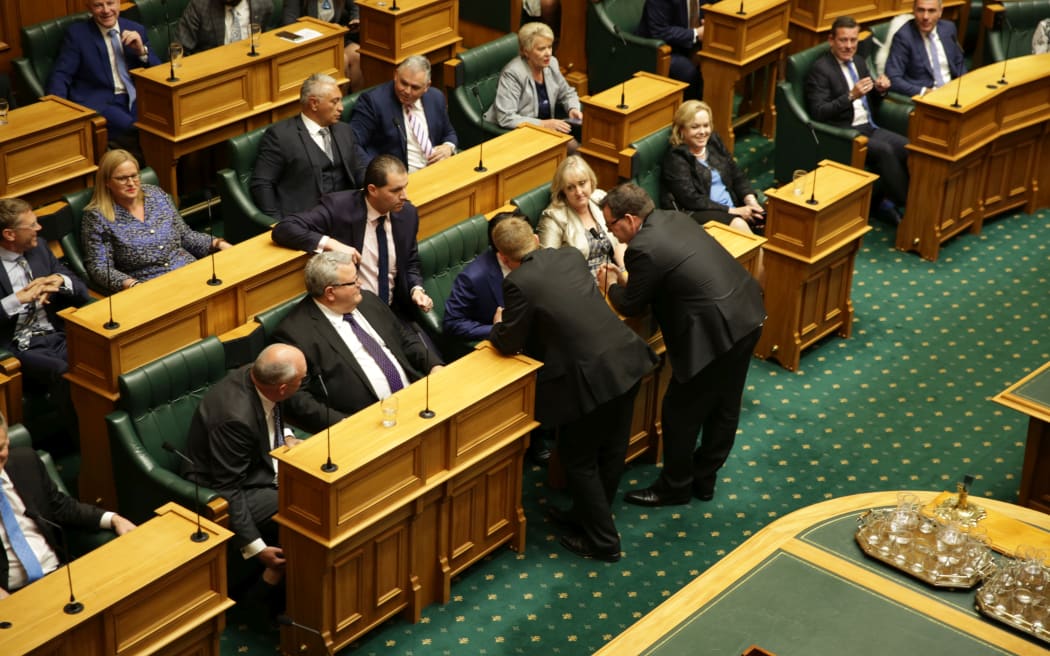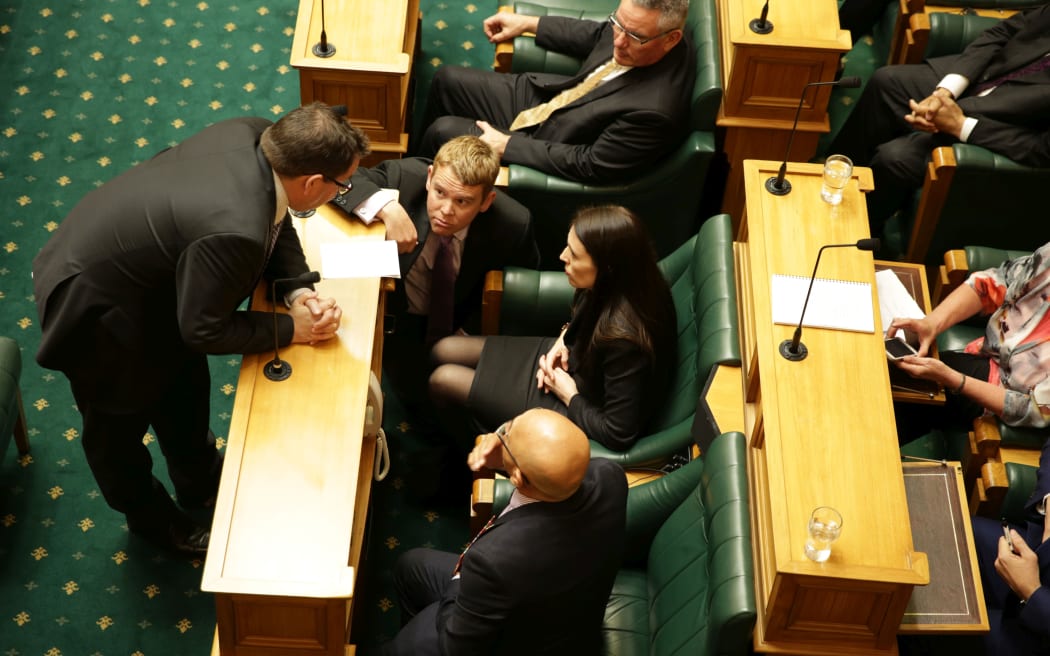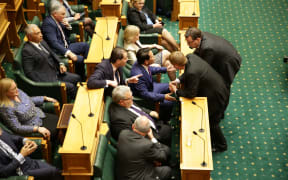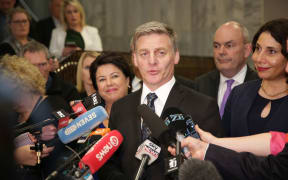Opinion - MMP doesn't remove the combative element of parliamentary politics, but yesterday's debacle was puerile, writes Finlay Macdonald.

National, in opposition, and Labour struck a hasty deal on the first day of the 52nd Parliament to increase the number of select committee positions to 108. Photo: RNZ / Richard Tindiller
In the aftermath of yesterday's unseemly, possibly unprecedented, confusion over the appointment of a parliamentary speaker, National was described as the "opposition from hell".
This could be read a couple of ways: a devilishly clever force to be reckoned with, or an unscrupulous bunch of trouble-makers intent on pointless chaos.
To decide which, it might help to peer through the smoke (if not fire and brimstone) of what happened. As far as we know - and we are taking politicians at their word here, so a note of caution - National had agreed to support the nomination of Trevor Mallard for Speaker, but reneged on that agreement once proceedings were under way.

The Labour front bench in deep discussion. Photo: RNZ / Richard Tindiller
Strike one against National.
During the confusion and impromptu horse-trading that ensued, Labour appears not to have forced the issue to a vote (having apparently expressed a desire that the appointment of the Speaker be unanimous, as is the convention), possibly because they were unsure of their numbers, and also whether absent and unsworn MPs' votes would count.
Strike one against Labour.
The issue of how many select committee places National was entitled to then came into play, with Labour allowing a compromise that would increase National's representation above what had previously been agreed by all parties during the previous parliament. Given Labour would later claim it did in fact have the numbers, and knew it, this seems hasty at best, panicky at worst.

Photo: RNZ / Rebekah Parsons-King
Strike two against Labour.
However, it was National that made the select committee issue such a sore point in the first place. Having agreed to the revised number recommended by the Standing Orders Committee when it was in power, it then cried foul in opposition. Threatening to use its numbers to make life difficult for the new government, Bill English's frankly gauche comment that "it is not our job to make this place work" set the tone for what would follow.
Strike two against National.
Her Majesty's Loyal Opposition was at it again today, attempting to upset the appointment of two Labour MPs as assistant speakers, but let's leave it as a tie for now. Because there are no real winners in this. Perception being such a large component of reality in politics, Labour came off looking naïve and subsequently disingenuous, National irksome and negative.
But taking a longer view, there was a sense - yet again - of MMP's inevitable teething troubles. Certainly some of the reporting of these shenanigans had the usual whiff of First Past the Post histrionics - who won the fight, was it a knockout? Embarrassment aside, however, the numbers still favour the government (obviously), and National's truculence doesn't alter that mathematical fact.
Yet the select committee system, being one of the few safeguards against unbridled executive power, requires a degree of constructive engagement by all parties.
Prior to yesterday's ad hoc renegotiation, National was looking at chairing five out of twelve select committees, and providing the deputy chair for another five. Eight committees would contain a balance of government and opposition MPs, with the government having a majority on the other four. Hardly the stacked deck National has claimed.
As citizens, we deserve and can only hope for better than this. MMP does not remove the combative element of politics, but it should encourage a more creative kind of conflict.
The kind of puerile antics and bad faith displayed during the opening of this parliament suggests some of its number will have to be dragged - almost literally - kicking and screaming into this new era.
* Finlay Macdonald was editor of the New Zealand Listener magazine from 1998 to 2003, commissioning editor at Penguin New Zealand from 2003 to 2005, and a weekly columnist for the Sunday Star-Times from 2003 to 2011.






